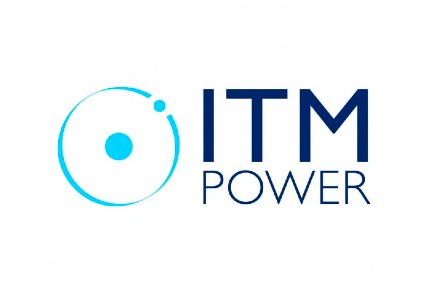With people becoming more aware of the climate crisis each year, it’s no surprise that investors are looking for opportunities in companies that produce cleaner sources of energy.
One of these cleaner methods is hydrogen, but what companies are exposed to hydrogen? Well, my guide will tell you some of the best hydrogen stocks UK, and some of the benefits and disadvantages of hydrogen power.
Also consider: Best UK Tech Stocks to Buy Now 2022
1. AFC Energy
AFC Energy is a hydrogen-focused power company that aims to power data centres with its alkaline fuel cells.
Staggeringly, these data centres account for over 2% of global carbon emissions. So, AFC Energy hopes that integrating hydrogen-based alkaline fuel cells into these centres would be of great benefit to the environment.
Even though AFC Energy has big plans, its share prices have been relatively volatile in recent years. Indeed, the company’s share price rested at 23 pence as of 21 July 2022, a sharp decrease from its 79 pence all-time high on 31 December 2020.
However, even though the company looks as though it is in hot water, the share price we’re seeing for AFC Energy today is almost back to how it was performing before its prices increased sharply.
Indeed, the company’s share price shot up from 17 pence on 16 October 2020, to the heights of 79 pence just a few months later.
This gradual decline could potentially be attributed to low revenue. Indeed, the company had just £276,000 in revenue in 2021, and although this was an 85% increase from the previous year, it still remains low for a company with a market cap of £150 million.
Even though AFC Energy’s share price isn’t looking too healthy just now, it may still be worth keeping an eye on.
Source: IG
{etoroCFDrisk}% of retail investor accounts lose money when trading CFDs with this provider. You should consider whether you can afford to take the high risk of losing your money.
2. Bloom Energy
Bloom Energy focuses on the manufacturing of industrial-sized hydrogen generators.
Better yet, the company’s electrolysers burn green hydrogen, which is completely clean and harmless to the environment.
Even though this is the case, Bloom’s generators are flexible and also allow the use of natural gas or biogas if need be.
As of the morning of 21 July 2022, Bloom Energy’s share price rested at $17.97.
This is a significant decline compared to the all-time high of $42.11 on 5 February 2021, and even though the company’s share price crept back up to $33.95 on 12 November 2021, the price has since dropped back to the prices we’re seeing today.
Bloom Energy’s shares have dropped in recent months, but the company’s aim to provide clean and cost-effective hydrogen power, paired with its healthy price-to-sales ratio, could mean it’s potentially still a decent addition to your portfolio.
Source: buyshares
{etoroCFDrisk}% of retail investor accounts lose money when trading CFDs with this provider. You should consider whether you can afford to take the high risk of losing your money.
3. Ceres Power
Ceres Power’s main focus for hydrogen production is the manufacturing of solid oxide fuel cells. This is a typically lower-cost way of producing hydrogen, though it isn’t as environmentally friendly as other methods of hydrogen production.
As for share price, Ceres Power opened at £6.18 as of the morning of 21 July.
However, the company has had a relatively tough few years – its share price fell from an 11-year high of £15.76 on 5 February 2021, gradually downwards to the prices we’re seeing today.
This could potentially be attributed to the fact that Ceres Power is not yet profitable. Nevertheless, the company does have around £250 million in cash reserves following successful fundraising efforts.
This cash balance cushion may be enough to fund the company self-sufficiently until it can become profitable.
Source: IG
{etoroCFDrisk}% of retail investor accounts lose money when trading CFDs with this provider. You should consider whether you can afford to take the high risk of losing your money.
4. Cummins Inc
You may recognise Cummins as the company that produces diesel engines, though they have since made a shift into green energy, particularly hydrogen.
The 101-year-old company now produces hydrogen fuel cells that are already being used to power trains in France, buses in China, and lorries around Europe.
If your main reason for investing in hydrogen is for environmental reasons, then Cummins could be the company for you.
The US government recently awarded a research grant of $2 million to help make the change from grey hydrogen to cleaner green hydrogen.
Cummins’ share price is relatively healthy too, sitting at $204.17 as of the morning of 21 July 2022.
The company has seen fairly decent growth over the last few years. Its share price did dip from $165.66 on 21 February 2020 to $120.91 on 20 March 2020 following the pandemic.
Fortunately, the company has recovered to levels far beyond its pre-pandemic prices. Indeed, Cummins’ share price reached an all-time high of $271.42 on 11 March 2021, though it has since levelled out to the current price.
Source: buyshares
{etoroCFDrisk}% of retail investor accounts lose money when trading CFDs with this provider. You should consider whether you can afford to take the high risk of losing your money.
5. ITM Power
Instead of gathering and storing hydrogen, ITM Power instead focuses on the manufacturing of electrolysers needed to produce hydrogen.
Even though the process of hydrogen electrolysis is still expensive, methods could become cheaper in the future as technology advances. Indeed, ITM Power aims to reduce the cost of its hydrogen electrolysers by 40% over the next year.
Also, the company just opened its new vast factory in Sheffield and plans to open an additional one when it reaches an electrolyser production capacity of 60%.
ITM Power’s share price has had a rocky few years. The share price is £1.99 as of the morning of 21 July 2022, though this is following a gradual decline from £6.66 on 5 February 2021.
However, with the new factory having just been opened, and its hopes to make green hydrogen electrolysers cheaper and more accessible, this could be a company to watch over the next couple of years.
Source: CMC Markets
{etoroCFDrisk}% of retail investor accounts lose money when trading CFDs with this provider. You should consider whether you can afford to take the high risk of losing your money.
6. Linde
Linde is a German-based chemical company that mainly focuses on the production and distribution of atmospheric gases.
When it comes to hydrogen, Linde is one of the biggest producers, with over 200 hydrogen production and refuelling stations across the globe. Linde even has the largest liquid hydrogen storage capacity in the world.
Linde’s share price sat at $282.50 as of 21 July 2022. In fact, the share price has been steadily on the rise since the company’s launch, with just a few dips along the way – notably during the 2008 financial crisis and the start of the Covid-19 pandemic in March 2020.
The company pays dividends, with a yield of 1.64% as of 21 July. Even so, with the impressive rises in share value, it may potentially be more suited as a growth purchase for your portfolio.
Source: CMC Markets
{etoroCFDrisk}% of retail investor accounts lose money when trading CFDs with this provider. You should consider whether you can afford to take the high risk of losing your money.
7. Plug Power
Many companies exposed to hydrogen experienced decent growth in 2020, and one of these was Plug Power. Indeed, the company saw huge growth in share price from $5.48 on 19 June 2020 to $66.87 on 22 January 2021.
However, these high share prices have since gradually declined to $18.05 as of 21 July 2022.
Plug Power’s aim as a company is to convert environmentally unfriendly battery-powered industrial equipment into cleaner hydrogen-powered machinery.
Alongside Bloom Energy, Plug Power is dominating the hydrogen fuel cell market. However, unlike Bloom Energy, which takes a more cost-effective approach to hydrogen generation, Plug Power focuses more on the production of typically more expensive proton exchange membrane cells.
This could potentially give Plug the edge over its similar competition – the push for green energy could offer lucrative years ahead.
Source: The Motley Fool
{etoroCFDrisk}% of retail investor accounts lose money when trading CFDs with this provider. You should consider whether you can afford to take the high risk of losing your money.
8. Powerhouse Energy Group
Powerhouse Energy Group recycles waste into hydrogen-based synthetic gases, converting plastics, tyres, and other waste that clogs up landfills into hydrogen.
Even though experts have said this process isn’t as scalable economically, Powerhouse Energy Group is set to open 11 new waste-to-hydrogen facilities across the UK over the next few years.
The company’s share prices sat at 2 pence as of 21 July 2022, though Powerhouse Energy has only seen relative success in recent years. Indeed, its share price reached a rather modest 10-year high of 9 pence on 31 December 2020.
Powerhouse Energy’s share price has since dropped back down to the levels we’re seeing today, though it has been hovering around the 2 pence mark for several months now.
Since the company is planning on expanding its operations across the UK over the next few years, and with the demand for waste management growing every day, Powerhouse Energy Group may be a company to keep an eye on.
Source: CMC Markets
{etoroCFDrisk}% of retail investor accounts lose money when trading CFDs with this provider. You should consider whether you can afford to take the high risk of losing your money.
Is hydrogen a good investment?
Climate change has been at the forefront of the public consciousness for a while now.
People are typically more aware of the damage being done to the environment, and so the shift towards cleaner energy from this so-called “green industrial revolution” could result in hydrogen potentially becoming a lucrative investment.
Hydrogen is one of the most abundant gases on the planet, and the only by-product of burning it is water. This makes it a prime candidate for an emission-free fuel source that could help decarbonise industry around the world.
In fact, with the UK government aiming to have net-zero carbon emissions by 2050, hydrogen could give the country the boost it needs to meet these targets.
The only issue the hydrogen industry faces is costs – it is still slightly too expensive to produce the gas to have a competitive advantage over fossil fuels.
The different ways you can invest in hydrogen stocks
If you know which hydrogen companies you want to invest in, you should next work out how you want to invest.
There are a couple of different investing methods to get involved in the hydrogen economy, so continue reading to find out everything you need to know.
Purchase shares individually
This is likely the first method that comes to mind when you think of investing.
Simply, purchasing shares individually is exactly what it sounds like – you’re buying shares in a company directly from the stock market.
Also consider: Best Stocks and Shares to Buy Now
When you purchase shares in a company, you can buy them and then sell them at a later date when the price has increased to turn a profit. Or, if you would prefer a regular income, you can hold onto your shares and earn through dividends.
However, not all companies offer dividend payments, so you should first double-check to see if the company you’re interested in offers this.
Through a fund
While this may be a less common option when it comes to investing in hydrogen, you could also get exposure to some hydrogen company stocks through a fund.
A fund is a type of pooled investment that uses investors’ money to then make its own investments. Funds are typically overseen by fund managers, who are financial experts that manage your money for you.
Also consider: Funds v.s Shares: Which is Better?
These managers choose which companies the fund will invest in and, depending on the performance of said constituent companies, dictate the performance of the fund itself.
So, by investing in a fund, you’re technically getting exposure to many different companies with a single investment.
If you’re looking to invest in hydrogen for the purpose of portfolio diversification, you may want to invest in a fund over individual shares.
Hydrogen ETFs
You could also invest in specific hydrogen exchange-traded funds (ETFs). These are funds that invest exclusively in hydrogen stocks or track an underlying index of hydrogen-producing companies, giving you instant access to multiple hydrogen stocks with a single investment.
Examples of hydrogen ETFs you could invest in include:
- Global X Hydrogen UCITS ETF
- L&G Hydrogen Economy UCITS ETF
- VanEck Hydrogen Economy UCITS ETF.
Crucially, while most other fund orders will be executed at the start of the next trading day, ETFs are traded on an exchange like a stock or share throughout the day. That means you can capitalise on smaller swings in value, too.
What exactly is hydrogen power?
As the name suggests, hydrogen power is simply energy that is generated from either the burning or electrolysis of hydrogen.
Potentially one of the greatest aspects of hydrogen power is its lack of emissions. In fact, the only output when hydrogen is converted into energy is electricity, water, and some heat.
Hydrogen power is typically drawn from electrochemical cells. These hydrogen fuel cells come in all shapes and sizes – smaller cells could be used to power laptops and phones, while larger cells could supply power to entire grids with energy.
This is why there has been such a push for hydrogen energy in recent years; not only is it relatively unharmful to the environment, but it is also extremely practical.
However, one of the biggest downsides to hydrogen power is the price.
One of the most common and cleanest ways of producing hydrogen is by electrolysis. This is when the base elements of water are split using electricity into its constituent elements, which in this case, are hydrogen and oxygen.
This can be expensive, which makes hydrogen typically less competitive when compared to other fossil fuels.
Of course, as time goes on, new innovations could come around that reduce the costs involved with the production of hydrogen for energy.
What are the uses of hydrogen power?
Another great thing about hydrogen power is its versatility. For example, it could be used to reduce emissions across virtually all sectors, including:
- Transportation
- Commercial
- Industrial
- Residential.
As mentioned, hydrogen fuel cell technology allows diverse access to the power source in a huge variety of ways, including:
- Hydrogen-powered vehicles, including cars, trains and aircraft
- Battery-powered industrial equipment
- Backup power systems for hospitals.
Since hydrogen can be turned into a portable power source that isn’t too damaging to the environment, the list of appropriate uses is almost endless.
Could hydrogen power be the answer to the climate crisis?
Even though it could go a long way in helping reduce the damage done to the climate, there are still massive steps that need to be taken before we can replace fossil fuels with hydrogen power.
For example, the cost is something that frequently comes up in discussions about the use of hydrogen. As it stands, hydrogen is expensive to produce since it first needs to be separated from water. This method of obtaining hydrogen in a clean way is aptly called “green hydrogen”.
Due to these higher costs, many companies find it uncompetitive to use.
In fact, companies find prices for green hydrogen so uncompetitive, that they will typically use “grey hydrogen” if their industry requires large quantities of the gas.
Grey hydrogen has been separated from natural gases rather than water, meaning it has more of a negative impact on the environment when compared to green hydrogen.
To become the sole solution to the climate crisis, hydrogen power companies would ideally have to look to reduce costs, especially since new renewable energy solutions are cropping up each year.
However, there are already companies trying to cut costs associated with hydrogen production, so the next few years could reveal new innovations that do just that.
Is the UK investing in hydrogen?
The UK government seems to be receptive to investing in hydrogen-exposed companies.
Indeed, the gov.uk website states that a £400 million government-backed grant was recently awarded to Johnson Matthey, a company that is developing different sustainable technologies, including green hydrogen.
The UK government hopes that more hydrogen infrastructure will help the country meet its 2050 net-zero target.
In fact, the gov.uk website even states that the government recently launched a plan to provide £4 billion in investments towards the hydrogen market in the UK by 2030.
Which oil companies are investing in hydrogen?
With climate issues being of such importance in recent years, even many oil companies are looking to get on board and start investing in hydrogen.
Indeed, some of the largest oil companies already with plans to gain exposure to hydrogen include:
- Shell
- BP
- Saudi Aramco
- Exxon.
Hydrogen Stocks UK FAQs
What is the best hydrogen stock to invest in from the UK?
The best hydrogen stock to invest in from the UK depends on your aims for investing.
If you want to invest in a hydrogen-exposed company for environmental reasons, you may want to consider companies that work solely with green hydrogen, like Plug Power.
Or, if you just want to invest in a company that deals with hydrogen regardless of whether it’s grey hydrogen or not, a company like Bloom Energy may better suit your interests.
Is hydrogen a good investment?
One of the things that could make hydrogen a good investment is the fact that it has promise as an alternative fuel source.
Many people these days are conscious of environmental issues, with emissions playing a significant role in this.
If hydrogen-exposed companies find a solution to uncompetitive prices, the abundant atmospheric gas could pave the way for cleaner vehicles, industrial machines, and more.
Please note
The value of your investments (and any income from them) can go down as well as up and you may not get back the full amount you invested.
Past performance is not a reliable indicator of future performance. Investments should be considered over the longer term and should fit in with your overall attitude to risk and financial circumstances.








